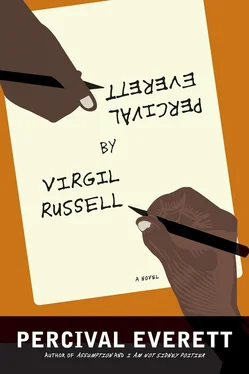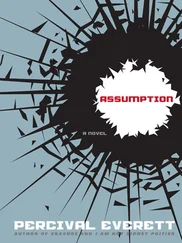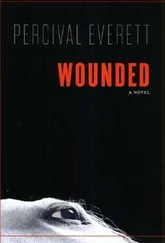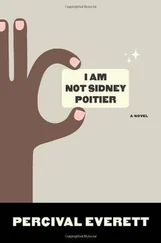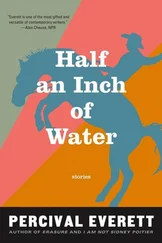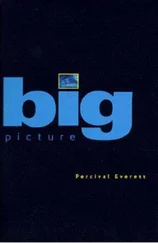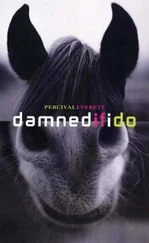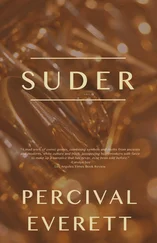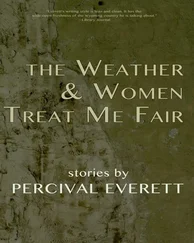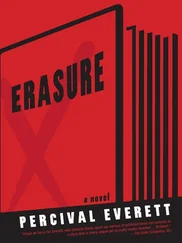Dad, you say, Dad, shaking your head, why all this about civil rights? Ranches? Civil rights?
What civil rights? I’m telling you a story. I’m not talking about civil rights. I’m an American; I take my civil rights for granted, just the way I’m supposed to, and then when the government tries to take them away, I go out and buy something, make a purchase, to save the economy, and then I forget about what they’re stealing from me. What I am telling you is a story about Nat Turner and William Styron. This is my way of giving you my history, on this the eve of my visit to the gallows, and much of your understanding of my history, and therefore yours, relies on your acknowledgment that I am a prophet of sorts.
Like Nat Turner.
No, not like Nat Turner. Turner was a slave. Don’t take that from him. Did I ever tell you the way I had you circumcised when you were a baby?
We never got into that.
Well, anyway, I want to reassure you about my health. I’m actually quite well. I was eating with such gusto this morning that I surprised myself. I think I am even up a pound or two. Even with my limited exercise, I seem to have more energy. This is either proof of the value of what little exercise I perform or an argument that exercise at all is purely superfluous. I feel no stiffness or discomfort. My bowels appear quite normal, though I must say I do not look too closely. All this to say, my life goes on the same, monotonously. Even reading is tedious now, words go in one eye and out the other. This is often frustrating because the words land back on the page in the same order that they held before. Remember when I promised to write you a page a day to keep my mind quick and fluid, well, fluid at any rate? Fuck that. I haven’t been doing it. I can’t wait for senility. Bring it on. At least trying to find my way back out of it will give me something to do. By the way, thank you for the chocolates. And, about the current goings-on, if I cared any more than I do, I’d be apathetic.
You’re referring to politics.
Who cares? See what I mean? Why August 1963? Because even though Kennedy didn’t give a shit, because even though his brother allowed the cross-dresser to tap King’s phones, because even though compromise came to mean an under-the-table ass-fuck, somebody cared about something other than money or winning. On the other hand, I never thought I’d see this day.
Dad, you say, Dad.
And I tell you or you remind me that I have told you that nothing irritates me more than when wishful thinking takes the place of sound reason. Remember what I used to say to you when you were a boy, food for thought is no substitute for the real thing. It don’t take a possum in a swamp to figure that one out. And yet my cries are shrill and clear and fine and falling like threads of silken light unwound from whirring spools — I could go on, but, lord, why? See what you get for visiting your old man?
At least you’re moderately amusing.
Could a duck swim? I raise my pint to you.
Oh, woe is me? Woe is me. I am practicing my woes. Nat put a hand on Charlton Heston’s shoulder and lowered his head. No, no, no, presently, present tense. Nat lowers his head.
Why the woes? Charlton asks.
The woes are my meal ticket. I am depressed. If only someone would listen. The river sweats oil and tar. Écoute de la presénte partie.
It became apparent to me that I had been undermined by the disease, even then resisting at every turn the employment of that word I hated, perhaps feared, so much, depression. I preferred the assignation neurasthenia, what William James called Americanitis, for I am so American, to my roots, my Southern, cotton-soiled roots. In fact, I would rather call it shinkeisuijaku, the Japanese term for it. Finding names for it would give me something to do on those nights when I felt so weak and lethargic, but lifted somehow by knowledge of my company in the disorder, Virginia Woolf and Marcel Proust. It is sad that there are those who would want to reduce this disease of the formidable intellect to a bout of the blues, as if one might sing his way clear of the darkness that pervades every corridor of one’s dank and dismal castle. Unlike some, I never soared with my malady, but rather, continuing the annoying song metaphor, the music of my days was a treble clef, a mere drone of contrabass and the sickly slow thumbing of a timpani.
You’re quite angry with Bill, aren’t you.
That’s not the point. I ask only that you be mindful in due time of my pain.
Why is that familiar?
Then dived he back into the fire that refines them.
First, imagine a quale that which none more experientially intimate can be conceived.
What is this exactly?
This is the beginning of my ontological argument for the existence of qualia. I like it better than the inverted spectrum argument, don’t you? Hardly different, but it’s prettier. No reason to be locked into any one way of thinking. I think it’s a decent first step toward the establishment of my solipsistic construction of, well, everything.
That would make the rest of us zombies.
More or less.
You’re worried about me. That makes two of us. Have you heard any new ones? I’d love to hear a new one.
I don’t know any new ones.
That’s a shame.
The results from the paternity test arrived in an envelope that seemed so usual. I knew what it was and so did Sylvia. Meg Caro wasn’t there and I wondered if she should be present for the opening of either an opening or a closure. Meg Caro had left a number and had been patient enough to not call in the week that it took the test to be completed. I looked at Sylvia.
What? she said.
Should I call and ask her to come over?
Sylvia had not so much softened to me as she had to the idea that the young woman might have a father. Call her.
Imagine, if you will, Jackson Pollock unveiling Number 1 in Firenze in 1550. How many ways would they have killed him? And they would have absolutely been right to do it.
Thus Encircled
We sat, the three of us, Meg Caro, Sylvia, and I, the envelope on the coffee table between us, Sylvia and I side by side on the sofa, Meg Caro in the matching stuffed chair across. The coffee table had once been a dining table, but I had sawn off the legs because as a dining table it was simply no good, too big for two, too small for four, but as a coffee table it was fine, just a wee bit high but fine. It was perfect for the envelope that lay on it, unopened and heavy. We three stared at it. The envelope was off-white, not quite tan, just a bit taller than a standard business envelope but as long. Whether it was foreshadowing or irony, Meg Caro and I had chosen to wear polo shirts embroidered with the same little equestrian figure, hers yellow, mine black.
Questions moaned and answers groaned, the screaming gulls claim song. The tripping steps lead to the depth and we merrily dance 91 along. If children had not spoiled the fun, brought with them so much dirt, this party would still be raging and no one would be hurt. It’s hard to read the rhymes this way, all flung out like some net, but they come and come and flood and flow because this is the one we get.
I looked at the letter and at Meg Caro. Her fat little toes were so unlike mine, barely reaching the tips of her sandals. Seeing her again I found that any resemblance to me or anyone in my family had faded. Murphy had come by the day before to check on me, he said. That was what friends did. He had his camera with him and though he looked into it from time to time it was clear he didn’t care to take any pictures. He talked about his new patient who was taking up so much of his time.
He sells drugs, he said. I can’t stand the man. I’m hard pressed to explain why I allow him as a patient. He’s despicable, pays me with camera equipment, and just like the idiots who buy his junk, I’m addicted. Leica and Nikon and Mamiya and Hasselblad and Zeiss and names that haunt my sleep. I’m carrying around this Leica now, can’t put it down. It’s all I can do to keep my eye from the viewfinder. I change lenses only to hear the sweet mechanical sound of the pieces connecting. I don’t sleep. There is film in the camera, was there when I took the camera from Donald or Douglas. I’m not so much confused now by the person as I am by the names. It’s clear that I have no descriptive material to connect to their respective names and so I have no idea as to which is who and who is what. I used to think they were identical, but disabused of that I believed that they were both simply fat, but it turns out that one, my patient, Douglas or Donald, is quite a bit fatter than his brother, Donald or Douglas. One of them, I will call him Donald, is the fat man who lies in his bed, and he is the man who encourages me to take cameras and he is the man who has the skinny, drug-addled consort whom he treats like shit and together, these statements together, should equate to his name, his descriptive marker, his designating phonetic flag. Maybe he doesn’t have a name at all or a different name, like Thomas, or Tomas, without the h, and I have never referred to him at all, though I have addressed him in his presence. Is his name a defining attribute of the man who is my patient? Does it matter whether he is Donald or Douglas? Would having one of these names or the other alter who he might be? A Donnie certainly would be perceived differently from a Doug, wouldn’t he? The present Donald is the king of France and he is bald. I might as well call him the fatter brother of either Douglas or Donald, if his brother is Douglas then he is Donald and if his brother is Donald then he is Douglas. I have been reading, always a bad thing with me, trying to understand how it is that I can refer to this man that I cannot even distinguish from another man who may or may not resemble him. I assume that there is a man such that that man is the fat man who is my patient. And for every man who is that man who is my patient and every other man, if both give me cameras, then that man is the same man. Any man who gives me cameras is the man who is my patient. See what all this has inevitably done to me. According to the truth.
Читать дальше
